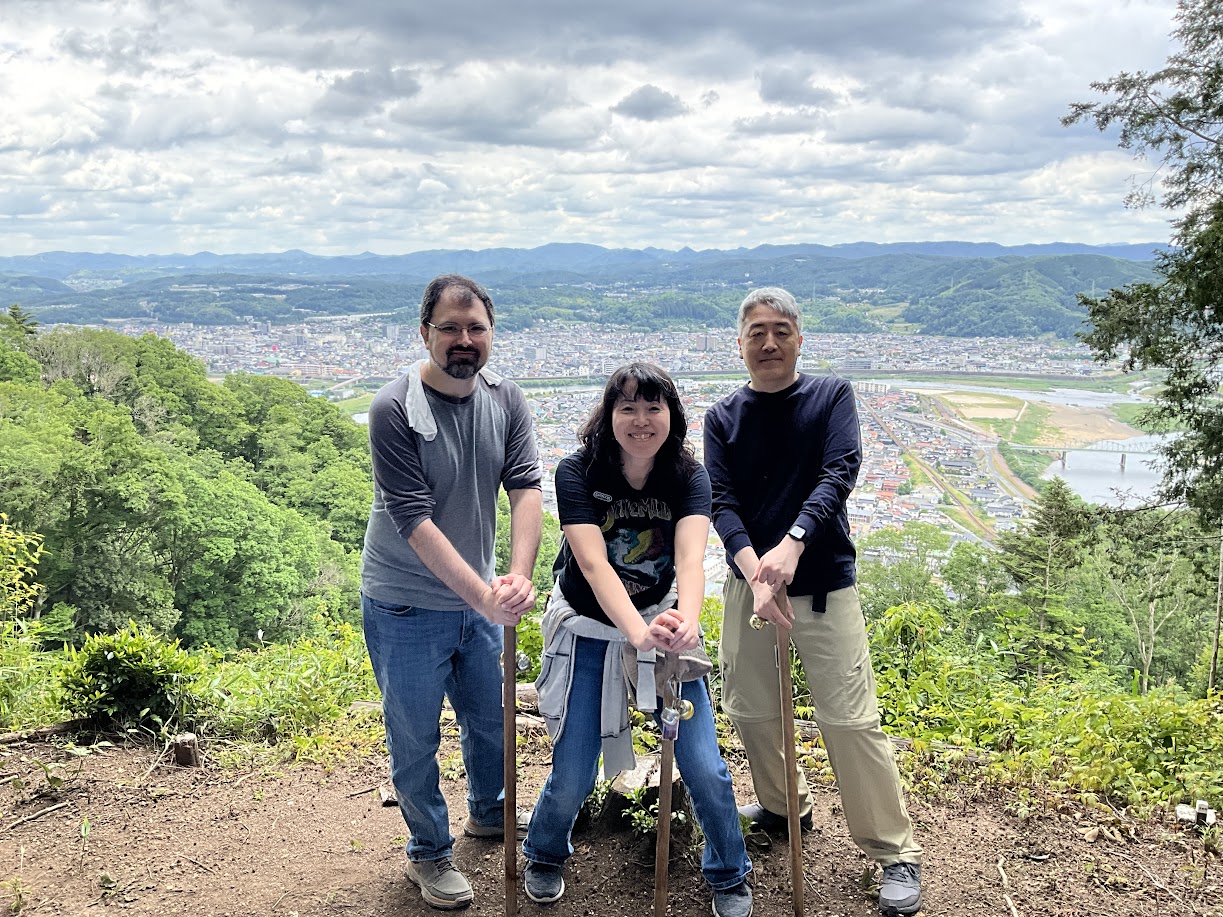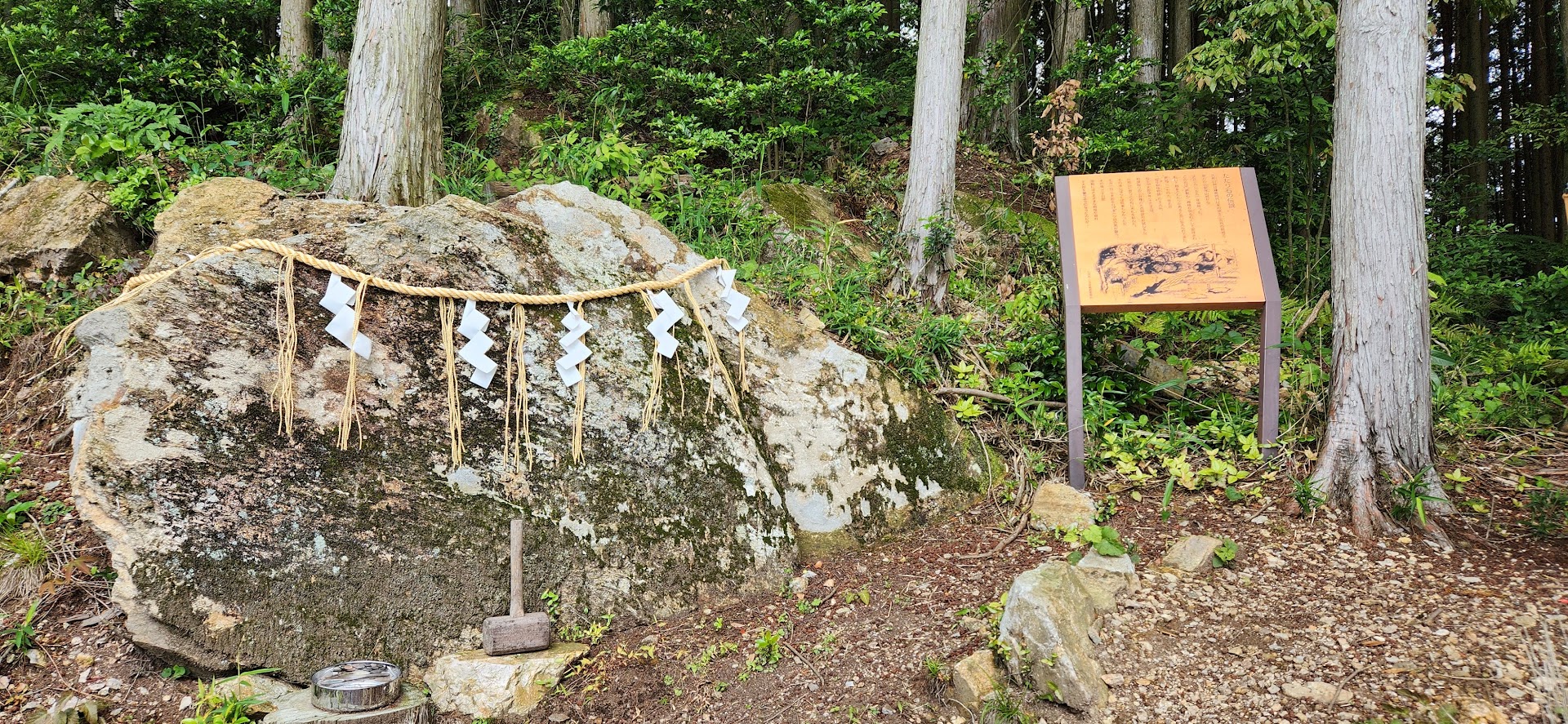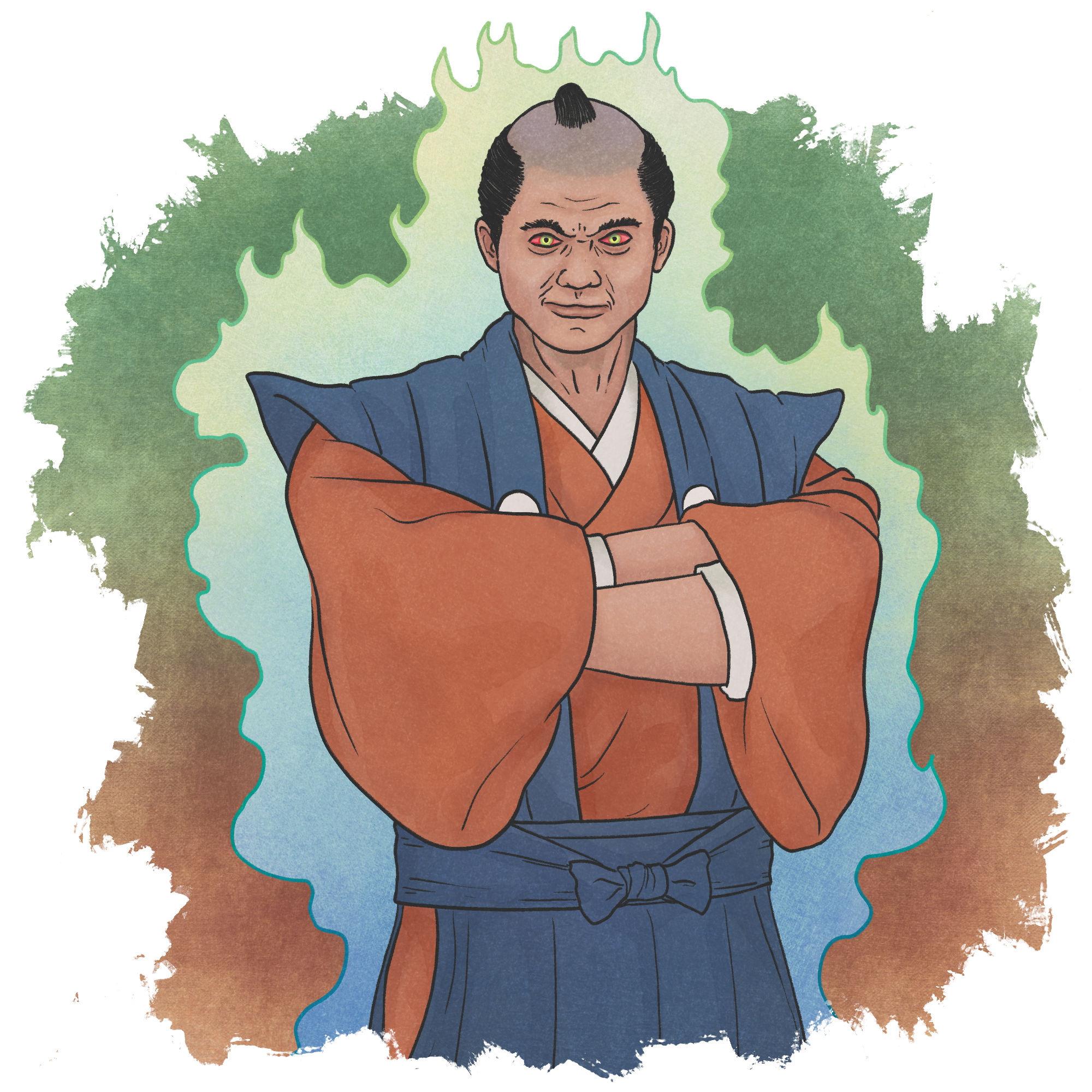Tonight’s story may be a familiar tale to many of you. That’s because I’ve talked extensively about Inō Mononoke Roku in the past on this blog. I even did an entire A-Yokai-A-Day on this amazing legend several years back, which are viewable in the archives.
That this story reached Negishi on Sado Island (or perhaps Edo, if he was there at the time) is a testament to how popular and widespread this legend was. It was truly known all over Japan. It’s also interesting, because Inō Mononoke Roku is generally known to have some elements of truth to it — many of the people and places in the story really existed. This account seems to corroborate that, as Negishi heard this tale directly from a person who had some close contact with the story (and is now a retainer, so clearly must be a reliable source!).

Incidentally, I climbed Mount Hikuma with my wife and Nagano-san a couple of years ago and, me being terribly out of shape and unathletic, I nearly passed out.

This is the stone that has been dubbed the legendary stone where Inō Budayū and his sumō wrestler friend went, although that’s entirely speculation.
The Yōkai of Hikuma Mountain, Geishū
Within Hikuma Mountain in Geishū lies an area that is forbidden to enter. There is a seven shaku tall stone pagoda inscribed with the elements of earth, water, fire, wind, and void, and legend says that a yōkai named Sanmoto Gorōzaemon lives there. However, there was a brave samurai named Inō Budayū. He and his close friend, a sumō wrestler, said:
“Why, in this day and age, should there be mysteries? Hey, let’s go to that cursed place on Hikuma Mountain and drink sake.”
So, they grabbed their bamboo flasks and went to the mountain, and they spent the entire day there drinking before heading home. About three days later, the sumō wrestler died for some unknown reason.
Starting the day after Budayū returned from Hikuma Mountain, strange things began happening every night at his place too, and continued for sixteen days. Even his servants asked for time off, and fled the house. Budayū wasn’t the least bit disturbed, and he remained dauntless. On the sixteenth day, the yōkai, perhaps having grown bored, introduced himself:
“Well now, brave man. I am Sanmoto Gorōzaemon.”
At that moment all of the strange phenomena ceased. Apparently the most difficult one to endure was when it smelled as if his rooms were scattered with manure. The filthy, foul stench was quite disturbing.
This was recounted by a man named Kobayashi Sensuke, who had lodged at Budayū’s place and is now a retainer of Lord Matsudaira of Buzen.


I just want to thank you for sharing these stories with us! It’s great to follow this every October! And thanks for all your contributions to the Yokai lovers who can’t read Japanese.
Thank you for reading! I’m glad you’re enjoying them.